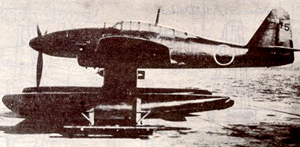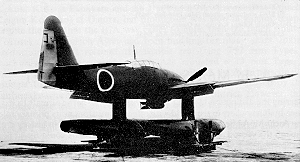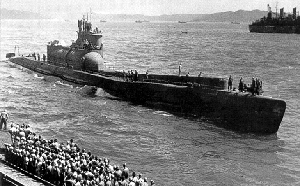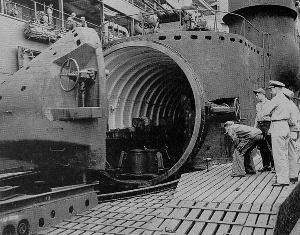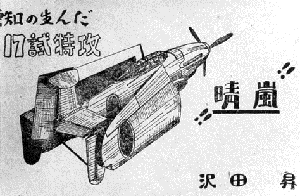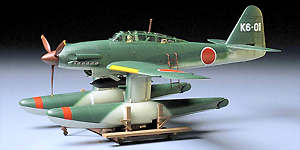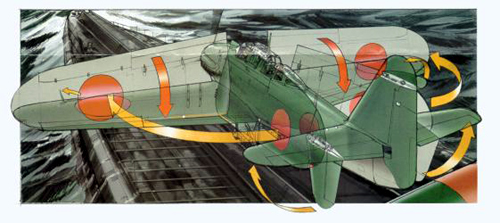|
The Seiran was designed to be carried on I-400 Class subs:
largest of WWII at 400 ft long, displacing 4,500 tons, surface
range of 37,500 nm at 14 knots. Seiran had distinction of being
only sub-borne aircraft built with offensive missions as primary
role; others built for reconnaissance. War ended, however,
before first sortie which was to have been against the Navy's
anchorage at Ulithi Atoll, about 200 miles south of Guam.
(Initial plans had been to attack the lock gates of the Panama
Canal). Original specs called for fast, catapult-launched
aircraft without undercarriage; this was later changed to
provide for twin floats. Despite added complexity of providing
for easy storage in watertight hangar of a sub, project
progressed smoothly. M6A1 had wing- and tail-folding mechanisms.
Wings swiveled on rear spar to lie flat along the fuselage; the
tip of the vertical tail folded to starboard, and the horizontal
tail surfaces folded downward. Despite apparent complexity,
first of 3 aircraft could be assembled in 7 minutes by a crew of
4 ; the second and third took about 15 and 20 minutes
respectively. Fluorescent paint applied to important parts to
aid in night assembly. Nanzan trainer version fitted with
conventional inward-retracting undercarriage, and the folding
tip of the rudder was eliminated as absence of floats improved
directional stability. The First Submarine Flotilla--including
two I-400 class subs and the I-13 and I-14--put to sea Jul 45,
but ware ended before an attack took place.
Photos above of the Seiran. Photos below of I-400 Class
Submarine (note catapult on forward deck), next photo shows the
water tight compartment that the planes were stored in during
transport (two planes could fit in this compartment and were
rolled out on tracks), next is a drawing of what the
Seiran looked like folded up, next is a photo of a plastic model
kit.
More
information can be found at this web site:
http://www.militaryphotos.net/forums/showthread.php?t=94026
|
